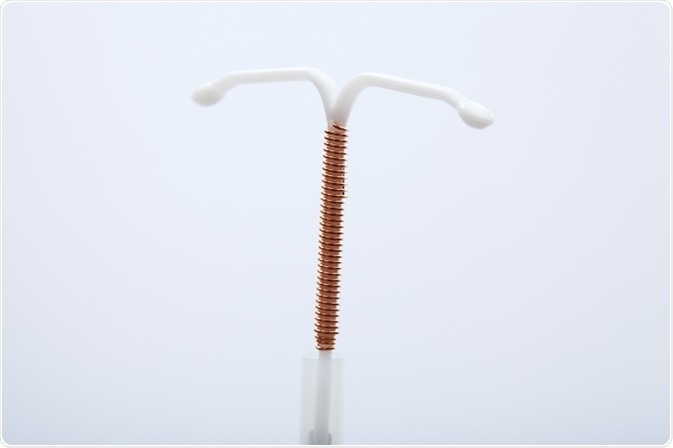Generic clonidine nz without prescription
An intrauterine device (IUD), also known as an intrauterine contraceptive device (IUCD), is a small T-shaped plastic device with copper banded around the transverse arms, which is inserted into the uterus to prevent pregnancy.

©Image Point Fr / Shutterstock.com
Advantages
The IUD is one of the most popular contraceptive methods, especially for long-term reversible contraception, as it can be easily fitted and removed.
Its advantages include:
- It is highly effective, with a 98-99 percent success rate over five years of IUD use
- It can be used by almost any woman including nulliparous
- Its action lasts for ten years if it is not removed in between
- The onset of action is immediate
- It is independent of sexual activity
- It doesn’t interfere with intercourse
- It is suitable for lactating women
- Fertility returns promptly on discontinuation
- It can be used by women who are on any type of medication
- It is not associated with cancer of any organ unlike hormonal contraception
- It does not cause weight gain
- It does not usually affect mood or sex drive
It is also suitable for women who cannot use estrogen-containing contraceptives, such as:
- Those with a history of venous thromboembolism
- Those with stroke, myocardial infarction, or other forms of arterial disease
- Those with long-standing diabetes
- Those subject to migraines
- Women over 35 years who smoke heavily
Disadvantages
Despite the obvious benefits of an IUD, it has minor and major drawbacks, such as:
- Menorrhagia is a frequent complaint, as are dysmenorrhea and polymenorrhea. These are the major reasons for IUD discontinuation as well
- It doesn’t offer any protection against sexually transmitted infections (STIs)
- There is a slight risk (1 percent) of acquiring uterine infection during IUD insertion within 20 days of the procedure. This is increased if the woman is prone to STIs. Women should be tested for gonorrhea or chlamydia before insertion, and for any other organism if they so request. Fortunately, pelvic infections with the IUD in utero can be treated adequately without removing the device
- If a woman becomes infected with an STI with an IUD in situ, pelvic inflammatory disease may result without adequate treatment
- Expulsion of the IUD may occur especially following or during the periods in the first three months. This is more commonly the case in nulliparous women, or those who had it inserted immediately post-partum or post-abortion. The risk is approximately 5 percent. If the device is expelled and the loss is noticed only after a few days, backup contraception should be immediately adopted
- Uterine perforation may occur in 0.1 percent of women during insertion. This may manifest as lower abdominal pain. Perforation will require surgical removal
- There is a higher risk of ectopic pregnancy if conception occurs with an IUD in situ, though pregnancies are very rare with this method
Contraindications
The use of the IUD is contraindicated in women who have:
- Irregular vaginal bleeding which has not been diagnosed and could be due to cancer of the female sexual organs
- Current or recent past history of pelvic infection
- Current dysmenorrhea or menorrhagia which could be worsened by the IUD
- Small uteri or abnormally-shaped uteri
- Ovarian, cervical, or endometrial cancer
- Malignant trophoblastic disease
- Structural heart disease with history of bacterial endocarditis
References
- http://www.nhs.uk/Conditions/contraception-guide/Pages/iud-coil.aspx
- http://patient.info/doctor/intrauterine-contraceptive-device-pro
- http://www.dudley.gov.uk/health/office-of-public-health/looking-after-yourself/sexual-health/contraception-and-stis/hormonal-contraception/the-intrauterine-system/the-intrauterine-device/
- https://online.epocrates.com/diseases/418/Oral-contraceptives
Further Reading
- All Contraception Content
- Advantages and Disadvantages of the Contraceptive Patch
- Advantages and Disadvantages of the Contraceptive Implant
- Advantages and Disadvantages of the Contraceptive Vaginal Ring
- Do Contraceptive Injections Affect Bones?
Last Updated: Feb 26, 2019

Written by
Dr. Liji Thomas
Dr. Liji Thomas is an OB-GYN, who graduated from the Government Medical College, University of Calicut, Kerala, in 2001. Liji practiced as a full-time consultant in obstetrics/gynecology in a private hospital for a few years following her graduation. She has counseled hundreds of patients facing issues from pregnancy-related problems and infertility, and has been in charge of over 2,000 deliveries, striving always to achieve a normal delivery rather than operative.
Source: Read Full Article
